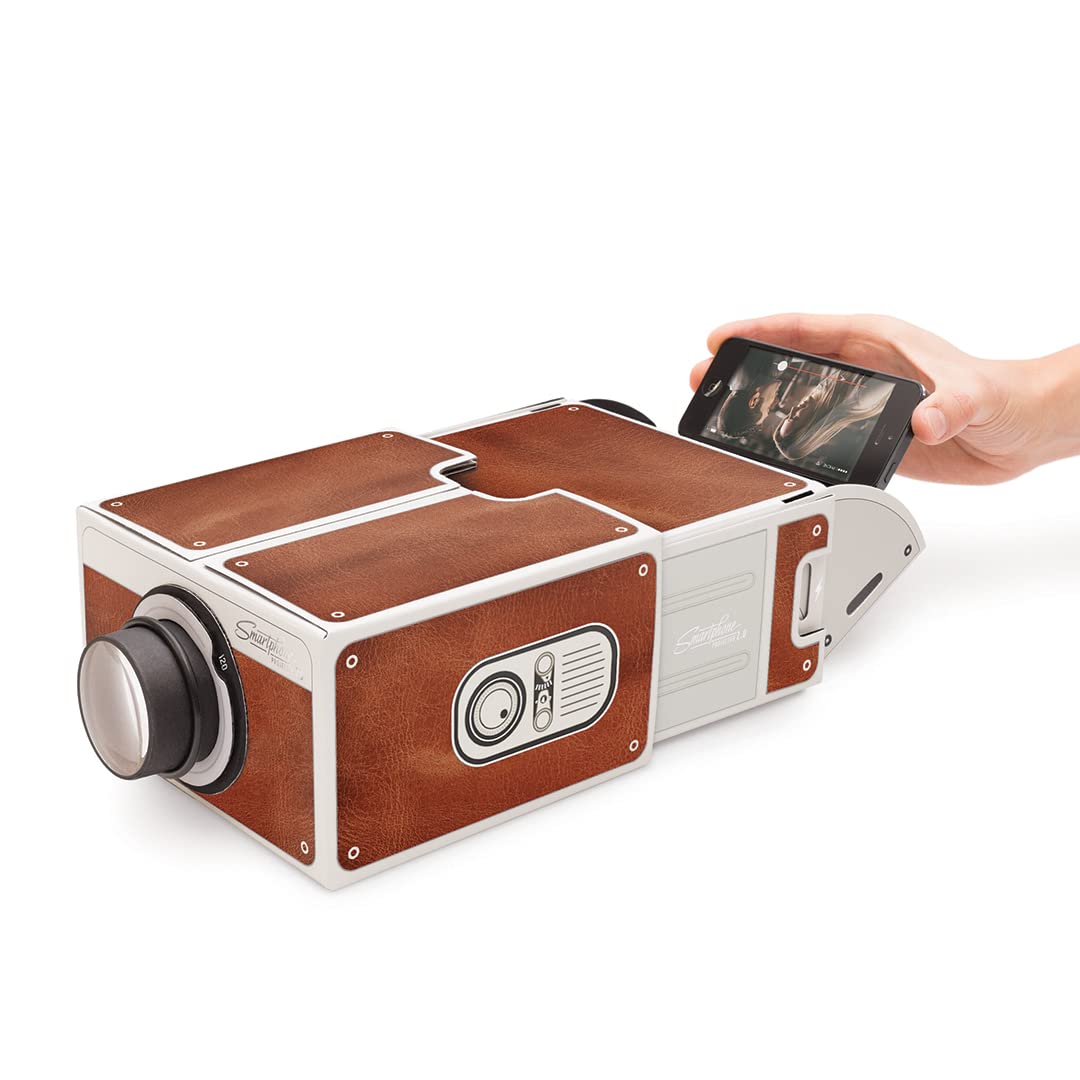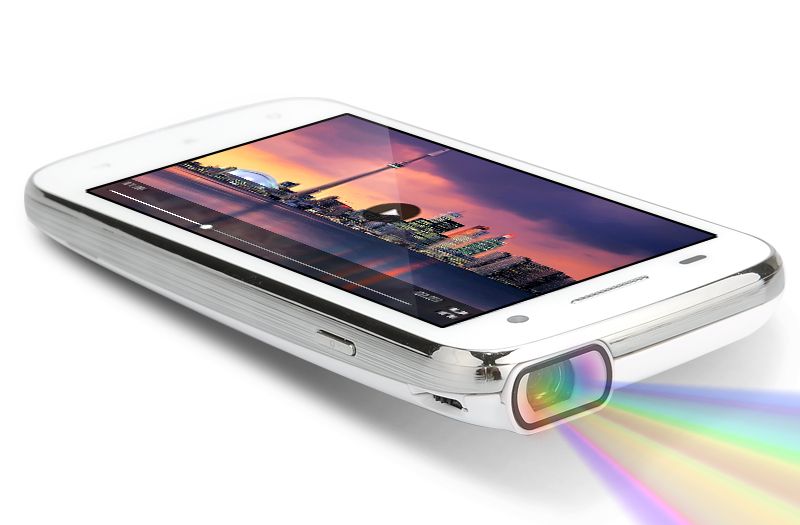The Comprehensive Guide to Phone Projectors: Understanding, Benefits, And Buying Tips
Introduction
Step into a world where mobile meets big screen entertainment. That's what phone projectors offer, an innovative technology that transforms your petite phone display into a mesmerizing, large screen viewing experience. In this comprehensive guide, you will unravel all about phone projectors, how they work, their benefits, and their pros and cons. In addition, the article offers useful buying tips to help you navigate the world of phone projectors. Plus, we answer some frequently asked questions about this exciting technology.
What is a Phone Projector?
A phone projector, as the term suggests, is a compact device that displays your phone's screen on a larger surface. The essence of a phone projector is its ability to use light and optical elements to project and magnify the content from your phone screen onto a big screen.
Let's break down its functionality:
- It receives data from your phone and utilizes this information to formulate a large-scale image.
- This process involves creating light from an electric lamp within the projector, which is then cast onto a wall or screen through a series of optical components.
- In doing so, it transforms the small screen display from your phone into a grand viewing experience.
So, what makes a phone projector a must-have gadget? Here are some highlights:
- It caters to both entertainment and work-related needs like watching videos, slideshows, and presentations.
- Not limiting to any specific phone make or model, it typically supports any smartphone that has screen mirroring functionality.
- It's compact, lightweight, and portable, fitting perfectly in the palm of your hand.
In simple terms, imagine transforming your living room wall into a mini-theater or your office space into a professional conference room, all from your smartphone. That's the world of phone projectors!
How Does a Phone Projector Work?
Examining the Key Technologies that Drive Phone Projectors
The marvellous technological functioning of phone projectors revolves around converting data input from the phone into a sizable image projected onto a larger surface. This transformation primarily relies on a light source and optical components. Let's take a detailed look below at how it works and the varieties of technology used:
1. Data Transmission: The first step involves your phone sending data, including any images, videos, or text, to the projector. This transmission often takes place via different connectivity options like HDMI, USB, Wi-Fi, or Bluetooth.

2. Conversion into Light: Once the projector receives the data from your phone, it begins to convert this data into light. This light, carrying the image or video, passes through significant optical components within the projector.
3. Amplification through Lens: The light, after conversion, is guided through a lens within the projector. Here, it gains both breadth and width, amplifying the original image or video display of your phone into a larger and enhanced visual on a surface like a wall or a screen.
4. Customization Features: Additionally, the projector comprises different controls to fine-tune the resulting projection. These options involve adjustments to focus, color, contrast, brightness, and the resolution of the projected image.
Now, let's examine the types of technologies commonly employed in phone projectors:
- DLP (Digital Light Processing): DLP projectors use millions of tiny mirrors and a spinning color wheel to create images, ensuring an optimum response time and smooth video motion, making them great choices for movies and fast-moving sports.
- LCD (Liquid Crystal Display): These projectors leverage liquid crystal displays to project images. Although considered slightly bulkier, LCD projectors are known for projecting vibrant, color-rich images, highly essential for graphic-intense games or photo displays.
- LCoS (Liquid Crystal on Silicon): Regarded as high-end phone projectors, LCoS technology combines the best attributes of both DLP and LCD. It offers the highest resolution among its counterparts and is ideal for delivering high-definition videos or images.
Why Should You Consider Using a Phone Projector?
Have you ever realized how far we’ve come in the world of technology? And among the array of gadgets and devices, a phone projector is another exciting addition.
Roles of a Phone Projector in Modern Technology
As devices continue to shrink yet their functionalities multiply, phone projectors have emerged as the digital world's game-changer. They extend the capacity of our palm-sized smartphones, giving us larger than life displays that span entire walls. What exactly does this look like in our everyday lives though? Let's break it down in the following contexts of modern technology:
1. Entertainment: Gone are the days when big screen experiences were limited to movie theatres or bulky home theatre systems. With phone projectors, every night can be a movie night with a cinematic experience, right at your home. Not only movies, enjoy immersive gaming or relive memories by projecting your photo albums.
2. Professional setting: The business world too has found numerous applications of phone projectors. Think business presentations or demonstrations, client meetings, or training sessions, all benefiting from the bigger, more collaborative viewing platform.
3. Education: Teaching in the digital age has greatly enhanced with phone projectors. Teachers can bring interactive elements to their classrooms, making learning more engaging. From PDfs to videos, it’s all about large scale visual learning now.
4. Artistic endeavors: For artists, a phone projector can digitize the canvas, offering unique ways of creating and viewing art.
From facilitating professional communication and learning to enhancing personal entertainment and artistic expression, phone projectors have significantly impacted the various spheres of our digital lives. This broad-spectrum utility coupled with their compact and portable nature makes phone projectors not just a fancy accessory, but rather an essential modern tech tool that enhances our smartphone experience tremendously.
What are the Pros and Cons of Phone Projectors?
How are phone projectors adapting to rectify their limitations?
Without a doubt, phone projectors offer a host of benefits that have made them increasingly popular among users. Here are some of the most significant advantages and drawbacks:
Advantages:
- Large Display: Phone projectors convert your small phone screen into a larger viewing platform, making it ideal for movie nights, presentations, and much more.
- Portable and Compact: Due to their lightweight and compact size, they can easily be carried around, providing an on-the-go cinema experience.
- Versatility: Whether it's for professional use or simply for entertainment, a phone projector is a versatile device catering to various needs.
Drawbacks:
- Resolution Limitations: Many phone projectors can't compete with conventional projectors or TVs when it comes to resolution, which can affect the viewing experience.
- Dependent on Battery Power: Most phone projectors rely on batteries, which can pose an issue for long-term use.
Technology never stays stagnant, and phone projectors are no exception. They are constantly adapting to overcome their limitations. Some newer models now offer greater resolution, and advances in battery technology promise longer projector run times. Undoubtedly, the future is bright for phone projector technology.

Navigating the World of Phone Projectors: What You Should Look for When Buying?
Embarking on the journey to buy a phone projector can be confusing, given the plethora of options available. However, focusing on essential factors can simplify the process and ensure you make a wise decision. Here are important considerations:
* Resolution: Resolution largely determines the quality of the projected image. High resolution provides crisp, clear visuals and creates an immersive viewing experience. Consider a projector with at least 720p for good quality projection.
* Brightness: Measured in lumens, brightness directly affects the visibility of the projection. Look for a projector that offers at least 2000 lumens for vibrant and vivid imagery.
* Connectivity: Consider how the projector connects to your phone. Some projectors offer wireless connectivity, while others require HDMI or USB cables. Choose a model that best suits your convenience.
* Battery Life: If you're planning to use your projector on the go, battery life becomes an important aspect. Choose a projector with a battery life of 2-3 hours at least for uninterrupted usage.
* Portability: A compact and light projector can be your travel companion, enhancing your mobile entertainment experience wherever you go.
* Price: Last but not least, does the price fit into your budget? While higher-end models offer more features and better quality, affordable options can also provide decent performance.
Remember, the best projector for you suits your specific needs and budget. Therefore, it's crucial to consider these factors when making your purchase. The right choice will surely invigorate your mobile viewing and sharing experience!
Conclusion
Phone projectors offer several advantages, which include portability, larger displays, and versatile use. They're compact, lightweight, and can be used anywhere - from your living room to a camping trip. However, they also have their disadvantages. Many phone projectors have lower resolution compared to regular projectors or televisions. They also rely on battery power, which can be a limitation if you're planning for extended usage.
But technology is continuously evolving, and so are phone projectors. Let's look at how they're overcoming their shortcomings.
Related FAQs about what is a phone projector
Are all phone projectors compatible with all smartphones?
Not all phone projectors are compatible with all smartphones. Compatibility largely depends on the model and the connectivity options it offers. However, most phone projectors now come with multiple connection options like USB, HDMI, Bluetooth, and Wi-Fi, allowing them to be used with a diverse range of smartphones.
How long does a typical phone projector's battery last?
The battery life of a phone projector can vary based on its model and usage. However, on average, the battery life ranges between 2-3 hours. This duration might decrease if the device is used continuously at its maximum brightness.
Is it worth buying a phone projector, or should I consider alternatives such as smart TVs or tablets?
Whether a phone projector is a worthy investment depends on your specific needs. If you seek mobility, compactness, and the ability to create a large-screen display anytime, anywhere, a phone projector is a great choice. However, for a more permanent setup with arguably better resolution and performance, alternatives like smart TVs or tablets might be better.


